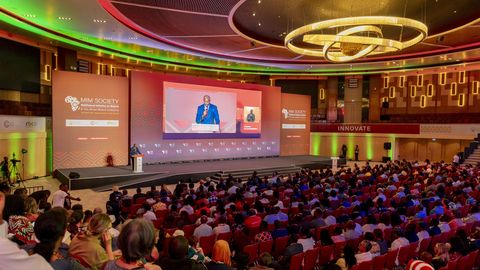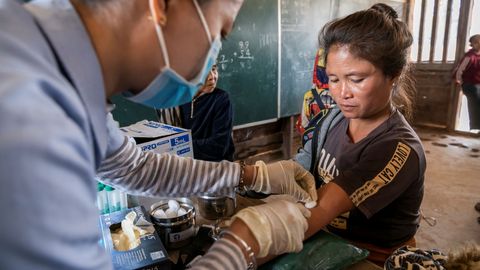

Epidemiology and Public Health
Infectious and Non-Communicable Diseases
The Department of Epidemiology and Public Health (EPH) conducts research into the causes of infectious and non-communicable diseases across the globe. EPH sets up long-term studies, even in the most remote places. Through broad, transdisciplinary knowledge, EPH develops and tests new public health interventions and has biostatisticians and mathematicians who are among the top in their fields. EPH works cost-effectively with a gender-sensitive lens on social health protection for the people, and with the people, towards better health and well-being.
Epidemiological, Biostatistical and Modelling Methods
EPH develops and applies cutting-edge epidemiological, biostatistical and modelling methods to advance the broad field of public health according to the institute’s strategy of innovation, validation and application. Developing and applying health impact assessment tools also provides information about the public health relevance of policies, strategies, decisions or projects. In these ways, EPH contributes to improving health and policy making in Switzerland, Europe, and in low- and middle-income countries in Africa, Asia and the Americas.
Sharing Expertise
Through its support platform, EPH’s methodological expertise is available to all Swiss TPH staff, University of Basel research partners and external customers. Services include study planning, quantitative and qualitative methods support, biostatistics advice, data management, software development and geographical information systems support to strengthen public health research and services.
EPH scientists also give advice to policy makers,agencies and institutions, an activity that constitutes a key part of our strategic commitment to supporting science-based policy making. EPH staff is also heavily involved in teaching and training at all levels and in various faculties and institutions.
Strengthening Population-Based Cohorts
Its 24 research groups are administratively and strategically assembled in eight interdisciplinary research units to address the dynamic clusters of cross-cutting public health topics. EPH strengthens large-scale national and international research platforms of population-based cohorts and promotes the scientific use of dynamic cohorts established inlarge demographic surveys in Africa and Asia. Departmental expertise includes integrating analysis of health databases with social, cultural, environmental, molecular and genetic information (biobanking) as well as modelling and mapping diseases and exposures.

Nicole Probst-Hensch
Professor, PhD (Pharmacy and Epidemiology), MPH
Head of Department
+41612848378
nicole.probst@swisstph.ch



 Nora Bauer Ott
Nora Bauer Ott
 Laura Innocenti
Laura Innocenti